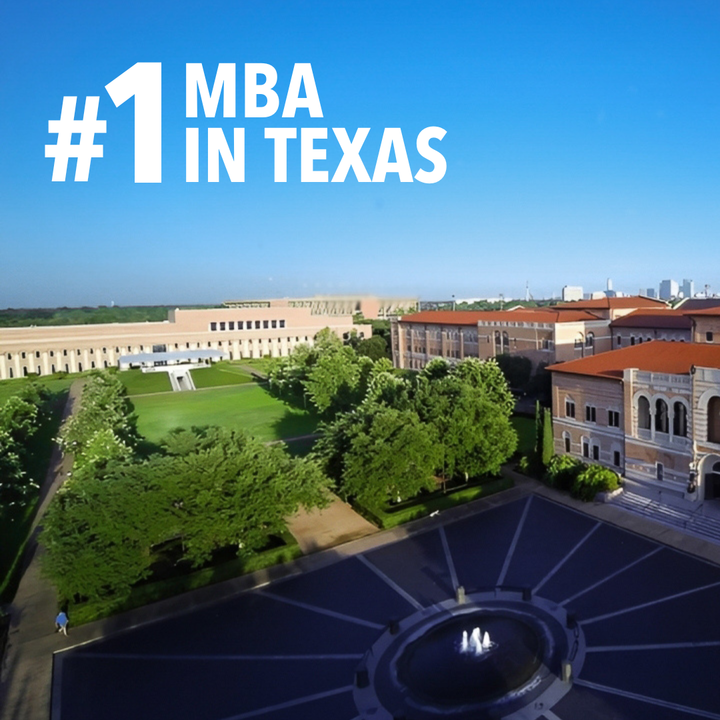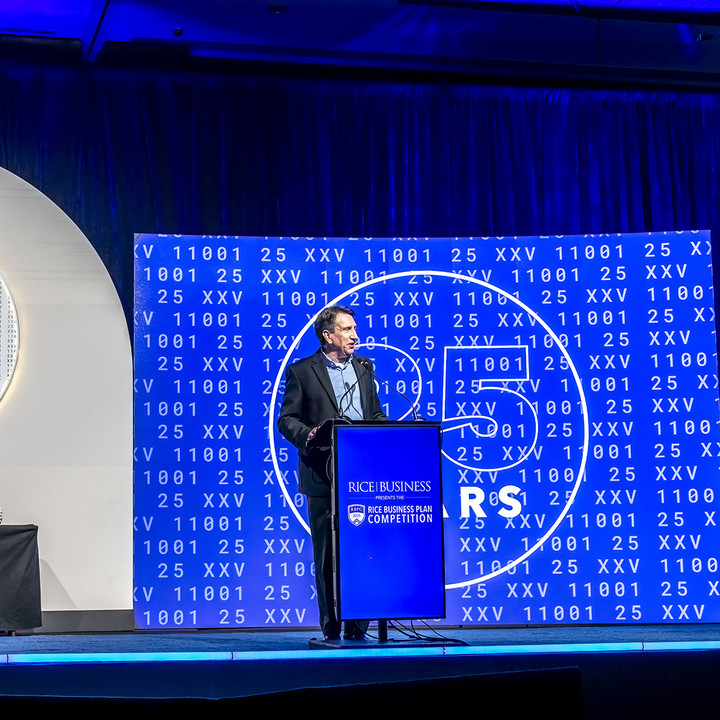News & Events
The Rice Alliance for Technology and Entrepreneurship has announced the 42 student-led teams that will compete in the 26th annual Rice Business Plan Competition this spring.
-
In The Media
“As a result, Fortune’s methodology doesn’t account for the true price tag of an MBA education. That’s particularly noticeable at generous programs like Rice University’s Jones Graduate School, where 95% of students receive support…with the average annual award being $40,000 per year according to the school.”
18 Feb -
School Updates
The 2026 Rice Business Plan Competition announced today the 42 startups invited to compete for more than $1 million in prizes April 9-11 at Rice University and in the Ion District. The RBPC, presented by Rice Business and hosted by the Rice Alliance for Technology and Entrepreneurship, serves as a global stage for emerging ventures from leading universities.
17 Feb
Filter
The Rice Alliance for Technology and Entrepreneurship has announced the 42 student-led teams that will compete in the 26th annual Rice Business Plan Competition this spring.
“As a result, Fortune’s methodology doesn’t account for the true price tag of an MBA education. That’s particularly noticeable at generous programs like Rice University’s Jones Graduate School, where 95% of students receive support…with the average annual award being $40,000 per year according to the school.”
The 2026 Rice Business Plan Competition announced today the 42 startups invited to compete for more than $1 million in prizes April 9-11 at Rice University and in the Ion District. The RBPC, presented by Rice Business and hosted by the Rice Alliance for Technology and Entrepreneurship, serves as a global stage for emerging ventures from leading universities.
The Jesse H. Jones Graduate School of Business at Rice University has been recognized among top graduate programs in the Financial Times global business school rankings released today, placing No. 1 in Texas, No. 16 in the United States and No. 38 globally.
"And when the FT asked alums which program allowed them to achieve their aims, the top school was Rice University’s Jones Graduate School of Business, with 93% of the respondents acknowledging their goals were successful"
Rice Business professor Alessandro Piazza explains why companies are largely silent as immigration enforcement reaches workplaces, showing how political and economic risks now discourage corporate activism.
Rice University’s Jesse H. Jones Graduate School of Business today announced the launch of its Graduate Certificate in Healthcare Management program, a 10-month, credit-bearing professional credential designed for current and aspiring leaders seeking deep expertise in the business of healthcare.
Two Rice University faculty members have been recognized with national awards from the Society for Industrial and Organizational Psychology (SIOP), highlighting the university’s impact on research that shapes understanding of work, well-being and organizational life.
Rice Business rose in the 2026 U.S. News Best Online MBA rankings, placing No. 21 overall and earning top 10 spots in finance and general management, highlighting the strength and reach of the online graduate program.
An all-veteran ownership team, Summit Point Leadership LLC, which launched through the Jones Graduate School of Business at Rice University and its Entrepreneurship Through Acquisition (ETA) Lab, has acquired the business of LDR Leadership LLC, a nationwide leadership, management and supervisory training firm.








